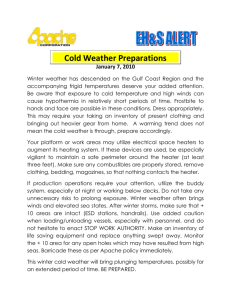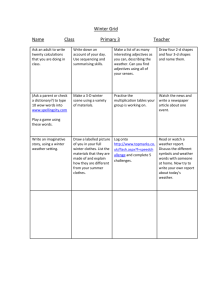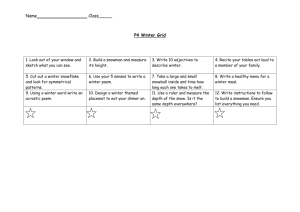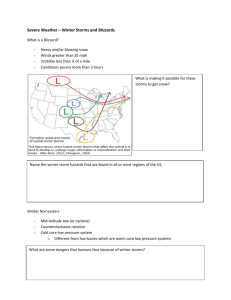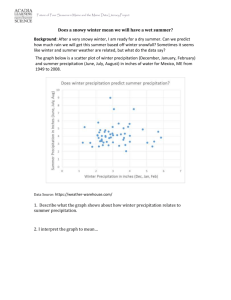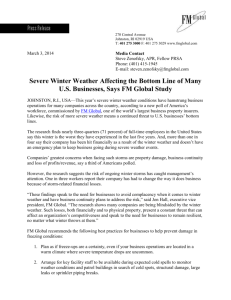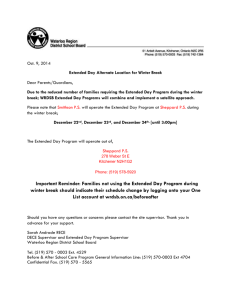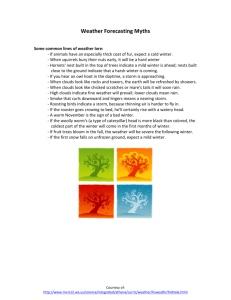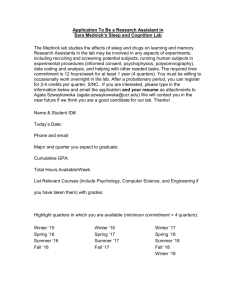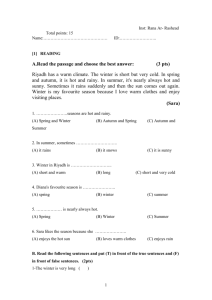Guidelines for Power Point Presentations
advertisement
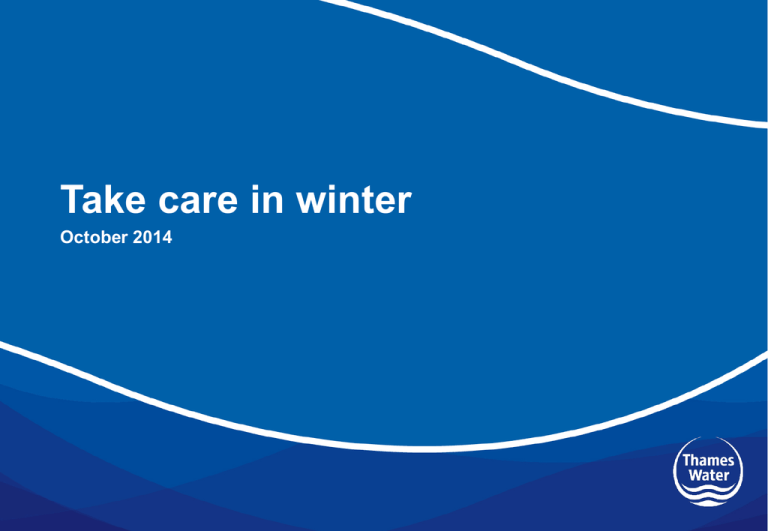
Take care in winter October 2014 Reduce your risk this winter This pack includes advice to protect you, your team and your site or office this winter. Keeping healthy and safe in winter • We see more slips and trips incidents and injuries during the winter months than the rest of the year, due to fallen leaves, reduced light and rain and ice. • Take care when working outside and remember to use the zero compromise card where you see unsafe acts or conditions. If you see something unsafe which needs further investigation, raise it on safeguard and inform your manager. • Make sure you wrap up warm in the cold to avoid hypothermia, frostbite and immersion foot. • Low temperatures can affect concentration, resulting in increased incidents and injuries. Be aware of how the cold is affecting you and take regular breaks to warm up. Working outside • Make sure you have the right PPE to stay safe while working and speak to your manager if you don’t. • Consider wearing a winter liner under your hard hat to avoid heat loss, or overshoe grips to avoid slipping. • Keep your clothing clean as dirt reduces its insulating properties. • Remember the PPE minimum standards and wear gloves while handling chemicals. This is particularly important with chemicals that evaporate quickly, such as petrol, alcohol, antifreeze and ether. These are particularly hazardous in cold weather as they take heat out of your skin as they evaporate. Winter proof yourself • Check whether your work environment is well lit, including pedestrian walkways and car parks. Report any lighting that isn’t working properly and check there aren’t any hazards that could be hidden by shadows. • Check there is a sufficient supply of grit available to keep paths and roadways safe. • Check emergency showers to make sure they are working, not leaking and not frozen. If the weather is freezing make sure the header tank is full and the shower is working before accepting a chemical delivery. • Make sure your site provides heated welfare facilities, with facilities for storing, drying and changing clothes, as well as making hot drinks. Stay safe on the roads • Whether you’re a cyclist or a driver, see our top tips to keep you safe on the road (available on the health and safety hub). • Fully charge your mobile phone in case you get stuck and save important numbers, including a contact who can help if you’re involved in an incident or get a puncture. • Check the treads and pressure of your tyres before a journey. • Tell someone where you’re going and when you expect to arrive and keep in regular contact with people where possible. • If the weather is really bad, consider whether you need to make the journey at all. Could you have a conference call instead of travelling? • Reduce your speed and allow yourself extra stopping distance between you and the car in front.
